 |
 |
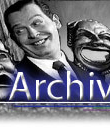 |
 |
 |
 |
 |
 |
Click on the picture of your favorite celebrity to view more information. | |
 |
|||||||||
|
A MATCHLESS LIBRARY TELEVISION ARCHIVE |
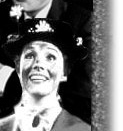 |
|
 |
|
 |
|
 |
|
 |
|
 |
|
 |
|
 |
|
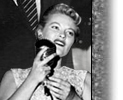 |
|
 |
|
 |
|
 |
|
 |
|
 |
|
 |
|
 |
|
 |
|
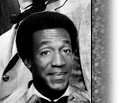 |
|
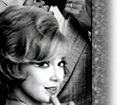 |
|
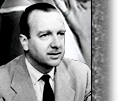 |
|
 |
|
 |
|
 |
|
 |
|
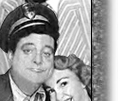 |
|
 |
|
 |
|
 |
|
 |
|
 |
|
 |
|
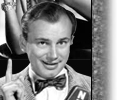 |
|
 |
|
 |
|
 |
|
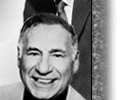 |
|
 |
|
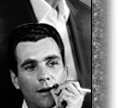 |
|
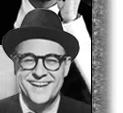 |
|
 |
|
 |
|
 |
|
 |
|
 |
|
 |
|
 |
|
 |
|
 |
|
 |
|
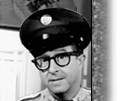 |
|
 |
|
 |
|
 |
|
 |
|
 |
|
 |
|
 |
|
 |
|
 |
|
 |
|
 |
|
 |
|
 |
|
 |
|
 |
|
 |
|
 |
|
 |
|
 |
|
 |
|
 |
|
 |
|
 |
|
 |
|
 |
|
 |
|
 |
|
 |
|
 |
|
 |
|
 |
|
 |
|
 |
|
 |
|
 |
|
 |
|
 |
|
 |
|
 |
|
 |
|
 |
|
 |
|
 |
|
 |
|
 |
|
 |
|
 |
|
 |
|
 |
|
 |
|
 |
|
 |
|
 |
|
 |
|
 |
|
 |
|
 |
|
 |
|
| Tributes | Talk | Events | News | Variety |
| Documentary | Music | Comedy | Juvenile | Awards |
| Biography | Sports | Productions | Others | Quiz |
| Specials |
|
52 Results found in Category Music Pages: [1] 2 |
|
#5903:
REVENGE WITH MUSIC
1951-02-19, WNBT, 30 min. John Raitt , Billy Gilbert , Anne Jeffreys , Audrey Christie , Vicente Gomez Presented on MUSICAL COMEDY TIME. Dietz-Schwartz musical about the Governor of a Spanish colony in 1812 who cannot resist the ladies. Musical numbers only. A lost television broadcast. Very good to excellent sound recording. |
|
#10394A:
RALPH FLANAGAN RADIO SHOW, THE
1951-04-15, Mutual, 20 min. Peggy King , Ralph Flanagan , Harry Prime Ralph Flanagan was a big band leader and musical composer. He composed and arranged for such big band leaders as Sammy Kaye, Charlie Barnet, and Alvino Rey.His instrument of expertise was the piano. His 1950s radio show was heard on the Mutual Radio network. Highlights of 4-15-51: "Apple Blossom Time" "Be My Love" "Penthouse Serenade" "Twilight Rhapsody" "Hearts And Flowers" The show also features vocalists Harry Prime and Peggy King. |
|
#5893AC:
RAY ANTHONY SHOW, THE
1954-07-09, CBS, 15 min. Ray Anthony June 28th, 1954-August 20th, 1954 (CBS) Fifteen-minute summer replacement series for the Perry Como Show. Like Como's fifteen-minute program, Anthony's show was seen on Monday, Wednesday, and Friday nights on CBS. It was also known as "TV's Top Tunes." This July 9th, 1954 broadcast is a complete fifteen-minute program. |
|
#10445:
REXALL SPECIAL: "BABES IN TOYLAND" VERSION 1 STARRING JO SULLIVAN LOESSER
1954-12-18, NBC, 90 min. Jo Sullivan Loesser Series of television specials presented by the Rexall Pharmaceutical Company for NBC television. "Babes In Toyland" Version 1 starring Jo Sullivan Loesser. |
|
#10447:
REXALL SPECIAL: "MERRY WIDOW THE" STARRING PATRICE MUNSEL, PART 1 OF 2.
1954-12-26, NBC, min. Patrice Munsel Series of television specials presented by the Rexall Pharmaceutical Company for NBC television. "The Merry Widow" starring Patrice Munsel. Part 1 of 2. |
|
#10447A:
REXALL SPECIAL: "MERRY WIDOW THE" STARRING PATRICE MUNSEL, PART 2 OF 2. CONCLUSION
1954-12-26, NBC, min. Patrice Munsel Series of television specials presented by the Rexall Pharmaceutical Company for NBC television. The conclusion of "The Merry Widow" starring Patrice Munsel. Part 2 of 2. |
|
#10442:
REXALL SPECIAL: "NAUGHTY MARIETTA" STARRING ALFRED DRAKE
1955-01-15, NBC, 90 min. Alfred Drake , Victor Herbert Series of television specials presented by the Rexall Pharmaceutical Company for NBC television. "Naughty Marietta" starring Alfred Drake. Music by Victor Herbert. |
|
#10440:
REXALL SPECIAL: "DESERT SONG" STARRING NELSON EDDY
1955-04-09, NBC, 90 min. Nelson Eddy Series of television specials presented by the Rexall Pharmaceutical Company for NBC television. "Desert Song" starring Nelson Eddy |
|
#10441:
REXALL SPECIAL: "CHOCOLATE SOLDIER" STARRING RISE STEVENS
1955-06-04, NBC, 90 min. Rise Stevens Series of television specials presented by the Rexall Pharmaceutical Company for NBC television. "Chocolate Soldier" starring Rise Stevens. |
|
#10394B:
RALPH FLANAGAN RADIO SHOW, THE
1955-08-20, Mutual, min. Ralph Flanagan , La Playa Sextet Ralph Flanagan was a big band leader and musical composer. He composed and arranged for such big band leaders as Sammy Kaye, Charlie Barnet, and Alvino Rey.His instrument of expertise was the piano. His 1950s radio show was heard on the Mutual Radio network. Dixieland music. Guests: La Playa Sextet. |
|
#10444:
REXALL SPECIAL: "THE GREAT WALTZ" STARRING PATRICE MUNSEL
1955-11-05, NBC, 90 min. Patrice Munsel Series of television specials presented by the Rexall Pharmaceutical Company for NBC television. "The Great Waltz" starring Patrice Munsel. |
|
#10446:
REXALL SPECIAL: "BABES IN TOYLAND" VERSION 2 STARRING BARBARA COOK
1955-12-24, NBC, 90 min. Barbara Cook Series of television specials presented by the Rexall Pharmaceutical Company for NBC television. "Babes In Toyland" Version 2 starring Barbara Cook. |
|
#10443:
REXALL SPECIAL: "MUSIC OF GEORGE GERSHWIN THE" ALFRED DRAKE
1956-05-12, NBC, 90 min. George Gershwin , Alfred Drake Series of television specials presented by the Rexall Pharmaceutical Company for NBC television. "The Music Of George Gershwin" with Alfred Drake. |
|
#10363:
RUSS MORGAN SHOW, THE
1956-07-14, CBS, min. Helen OConnell , Russ Morgan July 7th, 1956- September 1st, 1956 (CBS) Saturday night half-hour musical variety series hosted by bandleader Russ Morgan and featured singer Helen O'Connell. Helen O'Connell sings "How Little We Know." |
|
#10365:
RUSS MORGAN SHOW, THE
1956-07-21, CBS, min. Helen OConnell , Guy Mitchell , Russ Morgan July 7th, 1956- September 1st, 1956 (CBS) Saturday night half-hour musical variety series hosted by bandleader Russ Morgan and featured singer Helen O'Connell. Guest: Guy Mitchell. |
|
#10348:
RUSS MORGAN SHOW, THE
1956-08-04, CBS, min. Helen OConnell , Johnny Mercer , Russ Morgan July 7th, 1956- September 1st, 1956 (CBS) Saturday night half-hour musical variety series hosted by bandleader Russ Morgan and featured singer Helen O'Connell. A medley of Johnny Mercer songs sung by Johnny Mercer. |
|
#5895:
RUGGLES OF RED GAP
1957-02-03, WNBC, 80 min. Jane Powell , Paul Lynde , Hal Linden , Peter Lawford , Imogene Coca , David Wayne , Michael Redgrave , Joan Holloway , The Buster Davis Choir Based on the 1915 book by Harry Leon Wilson. A cattleman on a trip to Europe, wins a stuffy English valet in a poker game whose escapades in adjusting to life in America are challenged. Garry Moore introduces the program. Slight variations in sound quality. No end credits. This is a lost television broadcast. |
|
#13180:
ROCK AND ROLL REVUE STARRING ALAN FREED, THE
1957-05-11, ABC, 11 min. Andy Williams , Edie Adams , Edith Adams , Alan Freed , Lillian Briggs , Sam The Man Taylor , Charlie Gracie , Alan Freed Orchestra , Jimmy Bowen and the Rhythm Orchids Alan Freed's guests are Edith Adams, Andy Williams, and Lillian Briggs. This SPECIAL ABC TV broadcast is the second of his two half-hour Rock'N' Roll Reviews. The first SPECIAL was broadcast one week earlier on ABC TV (May 4, 1957). Freed conducts the orchestra. All Excerpts of songs performed: -Jimmy Bowen and the Rhythm Orchids: "I'm Stickin' With You." -Lillian Briggs: "I Want You To Be My Baby." -Edith Adams: "He Don't Want To Be Kissed." -Charlie Gracie: "Fabulous." -Edith Adams sings a medley of the best of Rock 'N' Roll with the Alan Freed Orchestra, including, "I'm Hoping That You Come Back To Me," "I'm All Shook Up," "Party Doll." NOTE: This television audio air check from ATA was donated to The Library of Congress, who requested having a copy, on December 29, 2009. Host: Alan Freed |
|
#5917:
RED MILL, THE
1958-04-19, WCBS, 77 min. Mike Nichols , Elaine May , Shirley Jones , Edward Andrews , Harpo Marx , Evelyn Rudie , Donald O'Connor September 29, 1957 - March 21, 1961 Presented on "DUPONT SHOW OF THE MONTH." 8th broadcast. Revamped television adaptation of Victor Herbert's 1906 operetta. Three individuals pass through a small Dutch town and are affected by the legend of the Red Mill. Harpo Marx and Evelyn Rudie were the narrators. No open or close recorded. HIGLIGHTS: "Every Day Is Ladies Day"........Edward Andrews & Elaine Stritch "Dream Love"............................Shirley Jones "When You're Pretty"..................Donald O'Connor "We'll Walk"...............................O'Connor, Elaine May, Mike Nichols "Moonbeams".............................Shirley Jones "In a Little World for Two"...........Jones, Mike Nichols, Elaine May "Because You're You".................Mike Nichols, Elaine May "In Old New York......................... Donald O'Connor "I'm Ready"..................................Elaine Stritch NOTE: According to the review in the New York Times (April 21, 1958), this production was "the FIRST television musical broadcast to be presented on the home screen by means of Ampex magnetic video tape technology." .90% was transmitted on tape, 10% was live. The original color 2" Quad Video Tape used for broadcast has been lost. This original audio tape, recorded direct line at the time of the original television broadcast on 1/4" reel to reel audio tape contains a superior sound track compared to the surviving B/W kinescope of this broadcast, with its less than pristine audio. |
|
#5942:
ROBERTA
1958-09-19, WNBC, 68 min. Bob Hope , Janis Paige , Howard Keel , Sara Dillon , Anna Maria Alberghetti Presented on "BOB HOPE BUICK SHOW." Bob Hope stars in a 90 minute adaptation of the big 1933 musical comedy hit of 25 years ago, Jerome Kern's "Roberta." |
|
#4432:
ROBERT HERRIDGE THEATER
1960-09-15, WCBS, 27 min. Robert Herridge , Ahmad Jamal , The Ben Webster Sextet July 7, 1960-September 22, 1960 (SYNDICATED). Ten half-hour broadcasts which included eight dramatic plays adapted by producer and host Robert Herridge. Only two programs were devoted to music. "Jazz From 61" features pianist Ahmad Jamal and his trio, and the Ben Webster sextet. The sextet plays "Mop Mop," "Chelsea Bridge" and "C-Jam Blues." The trio offers "Darn That Dream" and two Jamal originals, "Excerpts From the Blues" and "Jim Loves Sue." |
|
#5417:
REMEMBER HOW GREAT
1961-02-09, WNBC, 52 min. Jack Benny , Andy Williams , Connie Francis , Juliet Prowse , Harry James , The McGuire Sisters Jack Benny hit radio in 1932. A lot of songs have come through the mill since then, and tonight Benny is host for a look-see at some of them. |
|
#10174:
RAGTIME ERA, THE: "ANY RAGS TODAY" (THE BIRTH OF THE BLUES)
1961-02-18, WOR, 28 min. Max Morath , Scott Joplin , John Stark , James Scoot February 11, 1961 - April 19, 1961
A 12-part series produced for the National Educational Television & Radio Center by KRMA-TV, Denver Colorado.
The Ragtime Era with host Max Morath, who at the age of 32 is the ideal spokesman. He holds forth at an elegant pianoforte, singing and playing in a lively, authentic style. He' a close student of the period when America's popular music developed, and he sparks the narrative segments with anecdote and erudition that is as bright as the music.
We hum ragtime tunes quite casually today, unaware, as Mr. Morath points out, that ragtime was once a national issue, and that the musicians’ union once passed a resolution censuring this type of music. Mr. Morath explains why ragtime was more than just another kind of tune. He tells of its origins and the men who first wrote it: Scott Joplin, the author of Maple Leaf Rag; John Stark, the first publisher of good ragtime music; James Scoot and others. He defines ragtime, syncopation, polyrhythm, and improvisation. He speaks of the player piano, the importance of the ragtime composer who wrote his music down, and the spread of ragtime across the nation by the end of the first decade of the twentieth century.
Episodes in this series cover American pop music from the 1890's to 1920. Included are broadcasts focusing on the Blues, Ragtime, Musical Comedy, Tin Pan Alley, the Mauve Decade, Those Singin' Songs, Movie Music, the Song Pluggers, Tempos of the Time, and the songs made popular during World War 1.
From radio to television to national fame as a performer, Max Morath became the recognized purveyor of music and popular culture of the ragtime era. That is the way most people remember Max Morath as “Mr. Ragtime.”
In 1959, his epic 12-episode TV series The Ragtime Era, was the first modern educational documentary at KRMA-TV in Denver that both entertained and informed. It ushered in a field now produced by modern documentarians like Ken Burns at Florentine Films. Max wrote, hosted, and performed each 30-minute episode live in one-take and followed that series with other TV projects.
He pioneered educational television with his producer Moss Hall and this series helped move the transition from National Educational Television (NET) to the Public Broadcasting System (PBS).
Archival Television Audio, Inc. has preserved in its archive ten of the twelve part series. Missing is the sixth broadcast in the series,"The Yankee Doodle Boy," and the ninth broadcast in the series, "Emancipation of Women: New Music of the 20's"
With “The Ragtime Era” National Educational Television brings viewers one of the most delightful, and at the same time informative series ever produced. But “The Ragtime Era” is more than a recreation of the music from 1890 to 1920. It is also a careful study of American social history between 1890 and 1920, a period which saw the beginning of the labor movement, modern technical achievements, feminism, the growing importance of Negroes and immigrants. It was a period of activity, unrest, gaiety and real distress. And, finally, “The Ragtime Era” provides the audience with some sound and at the same time uncomplicated, musical theory and analysis. To do all of this KRMA-TV, the Denver affiliate of NET, has drawn on the services of singer-pianist-musician Max Morath, who combines with his performances of ragtime classics a presentation of the pictures, stage sets, and other paraphernalia of “The Ragtime Era.”
Episodes:
Episode #1: The Mauve Decade
Episode #2: Any Rags Today
Episode #3: Lonesome Road
Episode #4: Those Real Singin’ Songs
Episode #5: More Music than Comedy
Episode #6: The Yankee Doodle Boy
Episode #7: Tin Pan Alley
Episode #8: Tin Pan Alley Also Ran
Episode #9: June, Moon, and Spoon (New Music of the '20s)
Episode #10: The Tempos of Our Time
Episode #11: Feet First
Episode #12: The Great War
|
|
#10175:
RAGTIME ERA, THE: "LONESOME ROAD" (THE BLUES)
1961-02-25, WOR, 28 min. Max Morath , Ernie Douglas , WC Handy February 11, 1961 - April 19, 1961
A 12-part series produced for the National Educational Television & Radio Center by KRMA-TV, Denver Colorado.
The Ragtime Era with host Max Morath, who at the age of 32 is the ideal spokesman. He holds forth at an elegant pianoforte, singing and playing in a lively, authentic style. He' a close student of the period when America's popular music developed, and he sparks the narrative segments with anecdote and erudition that is as bright as the music.
Mr. Morath’s subject for this program is the blues: their origin, their musical form, and the new rhythms involved. Combining musical analysis with some excellent performances by Ernie Douglas singing the blues, Mr. Morath presents a program of musical theory, history, and song. He talks about one of the fathers of the blues, WC Handy, and about the spread of the blues from Memphis to London, England. He gives a picture of music whose importance and popularity still continue, half a century later.
Episodes in this series cover American pop music from the 1890's to 1920. Included are broadcasts focusing on the Blues, Ragtime, Musical Comedy, Tin Pan Alley, the Mauve Decade, Those Singin' Songs, Movie Music, the Song Pluggers, Tempos of the Time, and the songs made popular during World War 1.
From radio to television to national fame as a performer, Max Morath became the recognized purveyor of music and popular culture of the ragtime era. That is the way most people remember Max Morath as “Mr. Ragtime.”
In 1959, his epic 12-episode TV series The Ragtime Era, was the first modern educational documentary at KRMA-TV in Denver that both entertained and informed. It ushered in a field now produced by modern documentarians like Ken Burns at Florentine Films. Max wrote, hosted, and performed each 30-minute episode live in one-take and followed that series with other TV projects.
He pioneered educational television with his producer Moss Hall and this series helped move the transition from National Educational Television (NET) to the Public Broadcasting System (PBS).
Archival Television Audio, Inc. has preserved in its archive ten of the twelve part series. Missing is the sixth broadcast in the series,"The Yankee Doodle Boy," and the ninth broadcast in the series, "Emancipation of Women: New Music of the 20's"
With “The Ragtime Era” National Educational Television brings viewers one of the most delightful, and at the same time informative series ever produced. But “The Ragtime Era” is more than a recreation of the music from 1890 to 1920. It is also a careful study of American social history between 1890 and 1920, a period which saw the beginning of the labor movement, modern technical achievements, feminism, the growing importance of Negroes and immigrants. It was a period of activity, unrest, gaiety and real distress. And, finally, “The Ragtime Era” provides the audience with some sound and at the same time uncomplicated, musical theory and analysis. To do all of this KRMA-TV, the Denver affiliate of NET, has drawn on the services of singer-pianist-musician Max Morath, who combines with his performances of ragtime classics a presentation of the pictures, stage sets, and other paraphernalia of “The Ragtime Era.”
Episodes:
Episode #1: The Mauve Decade
Episode #2: Any Rags Today
Episode #3: Lonesome Road
Episode #4: Those Real Singin’ Songs
Episode #5: More Music than Comedy
Episode #6: The Yankee Doodle Boy
Episode #7: Tin Pan Alley
Episode #8: Tin Pan Alley Also Ran
Episode #9: June, Moon, and Spoon
Episode #10: The Tempos of Our Time
Episode #11: Feet First
Episode #12: The Great War
|
|
#10176:
RAGTIME ERA, THE: "THE REAL SINGIN' SONGS"
1961-03-04, WOR, 28 min. Max Morath , Barbershop Quartet February 11, 1961 - April 19, 1961
A 12-part series produced for the National Educational Television & Radio Center by KRMA-TV, Denver Colorado.
The Ragtime Era with host Max Morath, who at the age of 32 is the ideal spokesman. He holds forth at an elegant pianoforte, singing and playing in a lively, authentic style. He' a close student of the period when America's popular music developed, and he sparks the narrative segments with anecdote and erudition that is as bright as the music.
Some songs stay alive despite any changes in taste or style, and a large number of the songs we’re singing now were written in the Ragtime Era. Mr. Morath sings many of them and describes why they have remained so popular for so long. The fact that they were written by musicians who were not professional song writers, the use of a simple pattern of notes, and the rhythms which made them easy to sing made these songs memorable. This program features not only Mr. Morath, but also a barbershop quartet.
Episodes in this series cover American pop music from the 1890's to 1920. Included are broadcasts focusing on the Blues, Ragtime, Musical Comedy, Tin Pan Alley, the Mauve Decade, Those Singin' Songs, Movie Music, the Song Pluggers, Tempos of the Time, and the songs made popular during World War 1.
From radio to television to national fame as a performer, Max Morath became the recognized purveyor of music and popular culture of the ragtime era. That is the way most people remember Max Morath as “Mr. Ragtime.”
In 1959, his epic 12-episode TV series The Ragtime Era, was the first modern educational documentary at KRMA-TV in Denver that both entertained and informed. It ushered in a field now produced by modern documentarians like Ken Burns at Florentine Films. Max wrote, hosted, and performed each 30-minute episode live in one-take and followed that series with other TV projects.
He pioneered educational television with his producer Moss Hall and this series helped move the transition from National Educational Television (NET) to the Public Broadcasting System (PBS).
Archival Television Audio, Inc. has preserved in its archive ten of the twelve part series. Missing is the sixth broadcast in the series,"The Yankee Doodle Boy," and the ninth broadcast in the series, "Emancipation of Women: New Music of the 20's"
With “The Ragtime Era” National Educational Television brings viewers one of the most delightful, and at the same time informative series ever produced. But “The Ragtime Era” is more than a recreation of the music from 1890 to 1920. It is also a careful study of American social history between 1890 and 1920, a period which saw the beginning of the labor movement, modern technical achievements, feminism, the growing importance of Negroes and immigrants. It was a period of activity, unrest, gaiety and real distress. And, finally, “The Ragtime Era” provides the audience with some sound and at the same time uncomplicated, musical theory and analysis. To do all of this KRMA-TV, the Denver affiliate of NET, has drawn on the services of singer-pianist-musician Max Morath, who combines with his performances of ragtime classics a presentation of the pictures, stage sets, and other paraphernalia of “The Ragtime Era.”
Episodes:
Episode #1: The Mauve Decade
Episode #2: Any Rags Today
Episode #3: Lonesome Road
Episode #4: Those Real Singin’ Songs
Episode #5: More Music than Comedy
Episode #6: The Yankee Doodle Boy
Episode #7: Tin Pan Alley
Episode #8: Tin Pan Alley Also Ran
Episode #9: June, Moon, and Spoon (New Music of the '20s)
Episode #10: The Tempos of Our Time
Episode #11: Feet First
Episode #12: The Great War
|
|
#10177:
RAGTIME ERA, THE: "MORE MUSIC THAN COMEDY"
1961-03-11, WOR, 28 min. Max Morath , George Gershwin , Cole Porter , ` Irving Berlin February 11, 1961 - April 19, 1961
A 12-part series produced for the National Educational Television & Radio Center by KRMA-TV, Denver Colorado.
The Ragtime Era with host Max Morath, who at the age of 32 is the ideal spokesman. He holds forth at an elegant pianoforte, singing and playing in a lively, authentic style. He' a close student of the period when America's popular music developed, and he sparks the narrative segments with anecdote and erudition that is as bright as the music.
Musical comedies broke away from the Viennese operetta in the Ragtime Era, and Mr. Morath spends this program telling about the ancestors of Naughty Marietta, and, later, Oklahoma! and Carousel. Jerome Kern, Irving Berlin, George Gershwin and Cole Porter gained their starts from the impetus of the musical comedies, vaudeville shows and extravaganzas of the Ragtime Era.
Episodes in this series cover American pop music from the 1890's to 1920. Included are broadcasts focusing on the Blues, Ragtime, Musical Comedy, Tin Pan Alley, the Mauve Decade, Those Singin' Songs, Movie Music, the Song Pluggers, Tempos of the Time, and the songs made popular during World War 1.
From radio to television to national fame as a performer, Max Morath became the recognized purveyor of music and popular culture of the ragtime era. That is the way most people remember Max Morath as “Mr. Ragtime.”
In 1959, his epic 12-episode TV series The Ragtime Era, was the first modern educational documentary at KRMA-TV in Denver that both entertained and informed. It ushered in a field now produced by modern documentarians like Ken Burns at Florentine Films. Max wrote, hosted, and performed each 30-minute episode live in one-take and followed that series with other TV projects.
He pioneered educational television with his producer Moss Hall and this series helped move the transition from National Educational Television (NET) to the Public Broadcasting System (PBS).
Archival Television Audio, Inc. has preserved in its archive ten of the twelve part series. Missing is the sixth broadcast in the series,"The Yankee Doodle Boy," and the ninth broadcast in the series, "Emancipation of Women: New Music of the 20's"
With “The Ragtime Era” National Educational Television brings viewers one of the most delightful, and at the same time informative series ever produced. But “The Ragtime Era” is more than a recreation of the music from 1890 to 1920. It is also a careful study of American social history between 1890 and 1920, a period which saw the beginning of the labor movement, modern technical achievements, feminism, the growing importance of Negroes and immigrants. It was a period of activity, unrest, gaiety and real distress. And, finally, “The Ragtime Era” provides the audience with some sound and at the same time uncomplicated, musical theory and analysis. To do all of this KRMA-TV, the Denver affiliate of NET, has drawn on the services of singer-pianist-musician Max Morath, who combines with his performances of ragtime classics a presentation of the pictures, stage sets, and other paraphernalia of “The Ragtime Era.”
Episodes:
Episode #1: The Mauve Decade
Episode #2: Any Rags Today
Episode #3: Lonesome Road
Episode #4: Those Real Singin’ Songs
Episode #5: More Music than Comedy
Episode #6: The Yankee Doodle Boy
Episode #7: Tin Pan Alley
Episode #8: Tin Pan Alley Also Ran
Episode #9: June, Moon, and Spoon (New Music of the '20s)
Episode #10: The Tempos of Our Time
Episode #11: Feet First
Episode #12: The Great War
|
|
#10178:
RAGTIME ERA, THE: "TIN PAN ALLEY"
1961-03-25, WOR, 28 min. Max Morath , Irving Berlin , Monroe Rosenfeld , Harry von Titzer February 11, 1961 - April 19, 1961
A 12-part series produced for the National Educational Television & Radio Center by KRMA-TV, Denver Colorado.
The Ragtime Era with host Max Morath, who at the age of 32 is the ideal spokesman. He holds forth at an elegant pianoforte, singing and playing in a lively, authentic style. He' a close student of the period when America's popular music developed, and he sparks the narrative segments with anecdote and erudition that is as bright as the music.
What is Tin Pan Alley? When did it get its start? Max Morath answers these and other questions in the course of an amazing and amusing program devoted to the music business. In the Ragtime Era. Do you realize that “A Bicycle Built for Two” was rejected by American music publishers, and only became popular after it was printed in England? Do you know who invented the phrase “Tin Pan Alley?” What do the names Rosenfeld, Von Tilzer, Berlin, or words like “nickelodeon,” “illustrated song,” or “coon song” mean to you? Did you know that popular music is one of the outstanding examples of the improvement in civil liberties over the past decade? Or that it was ragtime which brought everyday speech and slang into popular songs?
In this episode, Max Morath explains how Tin Pan Alley got its name; discusses the rise of the popular song in America; explains the idea of the “Illustrated Song” as an advertising technique for selling songs; discusses the dangers of stereotypes and racism in song and plays a “coon song” from the Rag Time Era; explains the meaning of copyright and gives a brief history on the invention of the gramophone.
Episodes in this series cover American pop music from the 1890's to 1920. Included are broadcasts focusing on the Blues, Ragtime, Musical Comedy, Tin Pan Alley, the Mauve Decade, Those Singin' Songs, Movie Music, the Song Pluggers, Tempos of the Time, and the songs made popular during World War 1.
From radio to television to national fame as a performer, Max Morath became the recognized purveyor of music and popular culture of the ragtime era. That is the way most people remember Max Morath as “Mr. Ragtime.”
In 1959, his epic 12-episode TV series The Ragtime Era, was the first modern educational documentary at KRMA-TV in Denver that both entertained and informed. It ushered in a field now produced by modern documentarians like Ken Burns at Florentine Films. Max wrote, hosted, and performed each 30-minute episode live in one-take and followed that series with other TV projects.
He pioneered educational television with his producer Moss Hall and this series helped move the transition from National Educational Television (NET) to the Public Broadcasting System (PBS).
Archival Television Audio, Inc. has preserved in its archive ten of the twelve part series. Missing is the sixth broadcast in the series,"The Yankee Doodle Boy," and the ninth broadcast in the series, "Emancipation of Women: New Music of the 20's"
With “The Ragtime Era” National Educational Television brings viewers one of the most delightful, and at the same time informative series ever produced. But “The Ragtime Era” is more than a recreation of the music from 1890 to 1920. It is also a careful study of American social history between 1890 and 1920, a period which saw the beginning of the labor movement, modern technical achievements, feminism, the growing importance of Negroes and immigrants. It was a period of activity, unrest, gaiety and real distress. And, finally, “The Ragtime Era” provides the audience with some sound and at the same time uncomplicated, musical theory and analysis. To do all of this KRMA-TV, the Denver affiliate of NET, has drawn on the services of singer-pianist-musician Max Morath, who combines with his performances of ragtime classics a presentation of the pictures, stage sets, and other paraphernalia of “The Ragtime Era.”
Episodes:
Episode #1: The Mauve Decade
Episode #2: Any Rags Today
Episode #3: Lonesome Road
Episode #4: Those Real Singin’ Songs
Episode #5: More Music than Comedy
Episode #6: The Yankee Doodle Boy
Episode #7: Tin Pan Alley
Episode #8: Tin Pan Alley Also Ran
Episode #9: June, Moon, and Spoon
Episode #10: The Tempos of Our Time
Episode #11: Feet First
Episode #12: The Great War
|
|
#10179:
RAGTIME ERA, THE: "TIN PAN ALLEY ALSO RAN" (THE SONG PLUGER)
1961-04-11, WOR, 28 min. Max Morath February 11, 1961 - April 19, 1961
A 12-part series produced for the National Educational Television & Radio Center by KRMA-TV, Denver Colorado.
The Ragtime Era with host Max Morath, who at the age of 32 is the ideal spokesman. He holds forth at an elegant pianoforte, singing and playing in a lively, authentic style. He' a close student of the period when America's popular music developed, and he sparks the narrative segments with anecdote and erudition that is as bright as the music.
Continuing with his anecdotes and analysis of Tin Pan Alley, Mr. Morath tells about the songs which no one remembers today – how they were chosen, what made theme popular, and why they were forgotten. He tells about the song-plugger, the growth of movies and the illustrated song, the development and decline of the sheet music business, and the importance of new kinds of music and novel ideas. He also speaks about the fascinating and feverish world behind the scenes of the popular music arena of the early 1900s.
Episodes in this series cover American pop music from the 1890's to 1920. Included are broadcasts focusing on the Blues, Ragtime, Musical Comedy, Tin Pan Alley, the Mauve Decade, Those Singin' Songs, Movie Music, the Song Pluggers, Tempos of the Time, and the songs made popular during World War 1.
From radio to television to national fame as a performer, Max Morath became the recognized purveyor of music and popular culture of the ragtime era. That is the way most people remember Max Morath as “Mr. Ragtime.”
In 1959, his epic 12-episode TV series The Ragtime Era, was the first modern educational documentary at KRMA-TV in Denver that both entertained and informed. It ushered in a field now produced by modern documentarians like Ken Burns at Florentine Films. Max wrote, hosted, and performed each 30-minute episode live in one-take and followed that series with other TV projects.
He pioneered educational television with his producer Moss Hall and this series helped move the transition from National Educational Television (NET) to the Public Broadcasting System (PBS).
Archival Television Audio, Inc. has preserved in its archive ten of the twelve part series. Missing is the sixth broadcast in the series,"The Yankee Doodle Boy," and the ninth broadcast in the series, "Emancipation of Women: New Music of the 20's"
With “The Ragtime Era” National Educational Television brings viewers one of the most delightful, and at the same time informative series ever produced. But “The Ragtime Era” is more than a recreation of the music from 1890 to 1920. It is also a careful study of American social history between 1890 and 1920, a period which saw the beginning of the labor movement, modern technical achievements, feminism, the growing importance of Negroes and immigrants. It was a period of activity, unrest, gaiety and real distress. And, finally, “The Ragtime Era” provides the audience with some sound and at the same time uncomplicated, musical theory and analysis. To do all of this KRMA-TV, the Denver affiliate of NET, has drawn on the services of singer-pianist-musician Max Morath, who combines with his performances of ragtime classics a presentation of the pictures, stage sets, and other paraphernalia of “The Ragtime Era.”
Episodes:
Episode #1: The Mauve Decade
Episode #2: Any Rags Today
Episode #3: Lonesome Road
Episode #4: Those Real Singin’ Songs
Episode #5: More Music than Comedy
Episode #6: The Yankee Doodle Boy
Episode #7: Tin Pan Alley
Episode #8: Tin Pan Alley Also Ran
Episode #9: June, Moon, and Spoon
Episode #10: The Tempos of Our Time
Episode #11: Feet First
Episode #12: The Great War
|
|
#10180:
RAGTIME ERA, THE: "TEMPOS OF OUR TIME"
1961-04-15, WOR, 28 min. Max Morath February 11, 1961 - April 19, 1961
A 12-part series produced for the National Educational Television & Radio Center by KRMA-TV, Denver Colorado.
The Ragtime Era with host Max Morath, who at the age of 32 is the ideal spokesman. He holds forth at an elegant pianoforte, singing and playing in a lively, authentic style. He' a close student of the period when America's popular music developed, and he sparks the narrative segments with anecdote and erudition that is as bright as the music.
“A tune needs a rhythmic pattern – unless you’re singing in the bathtub. How else will you know when to tape your feet?” So asks Mr. Morath at the beginning of this program. He spends the rest of the half hour explaining all the different rhythmic patterns used in ragtime music. Using delightful examples and the rhythm section of a band to illustrate his points, he distinguishes between 2/4, ¾ and 6/8 time, between largo, allegretto, and other tempos, and he shows how the rhythm of a song can change its whole feeling. The foot-tapping part of a song is just as important as the words or the harmonies, and this program explores how the foot-tapping part is composed.
Continuing with his anecdotes and analysis of Tin Pan Alley, Mr. Morath tells about the songs which no one remembers today – how they were chosen, what made theme popular, and why they were forgotten. He tells about the song-plugger, the growth of movies and the illustrated song, the development and decline of the sheet music business, and the importance of new kinds of music and novel ideas. He also speaks about the fascinating and feverish world behind the scenes of the popular music arena of the early 1900s.
Episodes in this series cover American pop music from the 1890's to 1920. Included are broadcasts focusing on the Blues, Ragtime, Musical Comedy, Tin Pan Alley, the Mauve Decade, Those Singin' Songs, Movie Music, the Song Pluggers, Tempos of the Time, and the songs made popular during World War 1.
From radio to television to national fame as a performer, Max Morath became the recognized purveyor of music and popular culture of the ragtime era. That is the way most people remember Max Morath as “Mr. Ragtime.”
In 1959, his epic 12-episode TV series The Ragtime Era, was the first modern educational documentary at KRMA-TV in Denver that both entertained and informed. It ushered in a field now produced by modern documentarians like Ken Burns at Florentine Films. Max wrote, hosted, and performed each 30-minute episode live in one-take and followed that series with other TV projects.
He pioneered educational television with his producer Moss Hall and this series helped move the transition from National Educational Television (NET) to the Public Broadcasting System (PBS).
Archival Television Audio, Inc. has preserved in its archive ten of the twelve part series. Missing is the sixth broadcast in the series,"The Yankee Doodle Boy," and the ninth broadcast in the series, "Emancipation of Women: New Music of the 20's"
With “The Ragtime Era” National Educational Television brings viewers one of the most delightful, and at the same time informative series ever produced. But “The Ragtime Era” is more than a recreation of the music from 1890 to 1920. It is also a careful study of American social history between 1890 and 1920, a period which saw the beginning of the labor movement, modern technical achievements, feminism, the growing importance of Negroes and immigrants. It was a period of activity, unrest, gaiety and real distress. And, finally, “The Ragtime Era” provides the audience with some sound and at the same time uncomplicated, musical theory and analysis. To do all of this KRMA-TV, the Denver affiliate of NET, has drawn on the services of singer-pianist-musician Max Morath, who combines with his performances of ragtime classics a presentation of the pictures, stage sets, and other paraphernalia of “The Ragtime Era.”
Episodes:
Episode #1: The Mauve Decade
Episode #2: Any Rags Today
Episode #3: Lonesome Road
Episode #4: Those Real Singin’ Songs
Episode #5: More Music than Comedy
Episode #6: The Yankee Doodle Boy
Episode #7: Tin Pan Alley
Episode #8: Tin Pan Alley Also Ran
Episode #9: June, Moon, and Spoon
Episode #10: The Tempos of Our Time
Episode #11: Feet First
Episode #12: The Great War
|
|
#10181:
RAGTIME ERA, THE: "FEET FIRST"
1961-04-22, WOR, 28 min. Max Morath February 11, 1961 - April 19, 1961
A 12-part series produced for the National Educational Television & Radio Center by KRMA-TV, Denver Colorado.
The Ragtime Era with host Max Morath, who at the age of 32 is the ideal spokesman. He holds forth at an elegant pianoforte, singing and playing in a lively, authentic style. He' a close student of the period when America's popular music developed, and he sparks the narrative segments with anecdote and erudition that is as bright as the music.
This program deals largely with those years after 1911, when “America jumped, not headlong but feet first, into a dance mania,” as Max Morath puts it. How many people remember the “Grizzly Bear,” the “Kangaroo Dips,” the “Lama Duck,” or the most famous one of all, the “Turkey Trot?” Mr. Morath plays the music which sent ragtime America dance-crazy, and the steps themselves, complicated or simple, exhausting or romantic, are danced by the Cornick dance team. The progression form the strenuous and difficult waltzes and schottische, to the simpler, less exhausting two-steps, to finally, the more elaborate tangos; the growth of dance halls, tea dances, and, incidentally, cocktail parties; the dances left over from the Ragtime Era which we’re still dancing – these are the topics of this program.
Episodes in this series cover American pop music from the 1890's to 1920. Included are broadcasts focusing on the Blues, Ragtime, Musical Comedy, Tin Pan Alley, the Mauve Decade, Those Singin' Songs, Movie Music, the Song Pluggers, Tempos of the Time, and the songs made popular during World War 1.
From radio to television to national fame as a performer, Max Morath became the recognized purveyor of music and popular culture of the ragtime era. That is the way most people remember Max Morath as “Mr. Ragtime.”
In 1959, his epic 12-episode TV series The Ragtime Era, was the first modern educational documentary at KRMA-TV in Denver that both entertained and informed. It ushered in a field now produced by modern documentarians like Ken Burns at Florentine Films. Max wrote, hosted, and performed each 30-minute episode live in one-take and followed that series with other TV projects.
He pioneered educational television with his producer Moss Hall and this series helped move the transition from National Educational Television (NET) to the Public Broadcasting System (PBS).
Archival Television Audio, Inc. has preserved in its archive ten of the twelve part series. Missing is the sixth broadcast in the series,"The Yankee Doodle Boy," and the ninth broadcast in the series, "Emancipation of Women: New Music of the 20's"
With “The Ragtime Era” National Educational Television brings viewers one of the most delightful, and at the same time informative series ever produced. But “The Ragtime Era” is more than a recreation of the music from 1890 to 1920. It is also a careful study of American social history between 1890 and 1920, a period which saw the beginning of the labor movement, modern technical achievements, feminism, the growing importance of Negroes and immigrants. It was a period of activity, unrest, gaiety and real distress. And, finally, “The Ragtime Era” provides the audience with some sound and at the same time uncomplicated, musical theory and analysis. To do all of this KRMA-TV, the Denver affiliate of NET, has drawn on the services of singer-pianist-musician Max Morath, who combines with his performances of ragtime classics a presentation of the pictures, stage sets, and other paraphernalia of “The Ragtime Era.”
Episodes:
Episode #1: The Mauve Decade
Episode #2: Any Rags Today
Episode #3: Lonesome Road
Episode #4: Those Real Singin’ Songs
Episode #5: More Music than Comedy
Episode #6: The Yankee Doodle Boy
Episode #7: Tin Pan Alley
Episode #8: Tin Pan Alley Also Ran
Episode #9: June, Moon, and Spoon
Episode #10: The Tempos of Our Time
Episode #11: Feet First
Episode #12: The Great War
|
|
#10182:
RAGTIME ERA, THE: "THE GREAT WAR"
1961-04-29, WOR, 28 min. Max Morath February 11, 1961 - April 19, 1961
A 12-part series produced for the National Educational Television & Radio Center by KRMA-TV, Denver Colorado.
The Ragtime Era with host Max Morath, who at the age of 32 is the ideal spokesman. He holds forth at an elegant pianoforte, singing and playing in a lively, authentic style. He' a close student of the period when America's popular music developed, and he sparks the narrative segments with anecdote and erudition that is as bright as the music.
The Ragtime Era, says Max Morath, ended with the end of World War I. He devotes a large part of this final program to a description, in words and music, of America’s part before, during and after the war. Our unwillingness, and our unpreparedness, then our desperate efforts to arm and to persuade our people that it was right to arm, our soldiers’ views of the war, and our reactions to the end of the war – all these reflected in the songs of the period, the songs which put an end to the Ragtime Era
Episodes in this series cover American pop music from the 1890's to 1920. Included are broadcasts focusing on the Blues, Ragtime, Musical Comedy, Tin Pan Alley, the Mauve Decade, Those Singin' Songs, Movie Music, the Song Pluggers, Tempos of the Time, and the songs made popular during World War 1.
From radio to television to national fame as a performer, Max Morath became the recognized purveyor of music and popular culture of the ragtime era. That is the way most people remember Max Morath as “Mr. Ragtime.”
In 1959, his epic 12-episode TV series The Ragtime Era, was the first modern educational documentary at KRMA-TV in Denver that both entertained and informed. It ushered in a field now produced by modern documentarians like Ken Burns at Florentine Films. Max wrote, hosted, and performed each 30-minute episode live in one-take and followed that series with other TV projects.
He pioneered educational television with his producer Moss Hall and this series helped move the transition from National Educational Television (NET) to the Public Broadcasting System (PBS).
Archival Television Audio, Inc. has preserved in its archive ten of the twelve part series. Missing is the sixth broadcast in the series,"The Yankee Doodle Boy," and the ninth broadcast in the series, "Emancipation of Women: New Music of the 20's"
With “The Ragtime Era” National Educational Television brings viewers one of the most delightful, and at the same time informative series ever produced. But “The Ragtime Era” is more than a recreation of the music from 1890 to 1920. It is also a careful study of American social history between 1890 and 1920, a period which saw the beginning of the labor movement, modern technical achievements, feminism, the growing importance of Negroes and immigrants. It was a period of activity, unrest, gaiety and real distress. And, finally, “The Ragtime Era” provides the audience with some sound and at the same time uncomplicated, musical theory and analysis. To do all of this KRMA-TV, the Denver affiliate of NET, has drawn on the services of singer-pianist-musician Max Morath, who combines with his performances of ragtime classics a presentation of the pictures, stage sets, and other paraphernalia of “The Ragtime Era.”
Episodes:
Episode #1: The Mauve Decade
Episode #2: Any Rags Today
Episode #3: Lonesome Road
Episode #4: Those Real Singin’ Songs
Episode #5: More Music than Comedy
Episode #6: The Yankee Doodle Boy
Episode #7: Tin Pan Alley
Episode #8: Tin Pan Alley Also Ran
Episode #9: June, Moon, and Spoon
Episode #10: The Tempos of Our Time
Episode #11: Feet First
Episode #12: The Great War
|
|
#6765A:
RICHARD MALTBY AND HIS ORCHESTRA FROM FREEDOMLAND
1961-09-17, CBS, 27 min. Richad Maltby A special broadcast on CBS Radio highlighting Richard Maltby and his orchestra from the Moonball in Freedomland Amusement Park. NOTE: Richard Maltby, American musician, conductor, arranger and bandleader was most notable for his 1956 recording, "The Man with the Golden Arm." His active years were during the 1930's - 1960's. |
|
#5413:
RAINBOW OF STARS
1962-04-17, WNBC, 52 min. Carol Lawrence , Robert Goulet , Al Hirt , Nancy Walker , The Rockettes , Dick Button , The Cathedral Boys' Choir of St. John The Divine Musical tour of Rockefeller Center with Robert Goulet as host. |
|
#5422:
ROBERT SHAW CHORALE AND ORCHESTRA, THE
1963-04-14, WNEW, 52 min. Robert Shaw Music for Easter and springtime presented on the Festival of Performing Arts. |
|
#19353:
RADIO ROCK'N'ROLL
1963-12-14, , min. Bruce Gordon Saturday night rock'n'roll show with Bruce Gordon. |
|
#5426:
RODGERS AND HART REVISITED
1964-03-25, WCBS, 27 min. Karen Morrow , Susan Watson , Stuart Damon , Fredricka Weber , Cy Young A Stage 2 presentation features little known music by Richard Rodgers and Lorenz Hart. |
|
#7741:
ROBERTA
1969-11-06, NBC, min. Bob Hope , Janis Paige , John Davidson , Michele Lee , Laura Miller , Ann Shoemaker , Irene Harvey , Eve McVeagh , Clifford David Presented on "BOB HOPE SPECIAL." Television adaptation of the Jerome Kern-Otto Harbach musical. John Davidson, Janis Paige and Michele Lee join Bob Hope in a new version of the 1933 musical-comedy hit that made Hope a Broadway star. An American fullback, John Kent, inherits an exclusive Paris dress shop from his Aunt Minnie. He and his friend, Huckleberry Haines, travel to Paris to run the shop. This was the second "Roberta" TV adaptation for Hope whose character Huckleberry Haines was first seen on television, broadcast on September 19, 1958, and currently archived in the collection of Archival Television Audi, Inc. Duplicate original recording of audio tape ATA #5935 and #7015. |
|
#7015:
ROBERTA
1969-11-06, NBC, 00 min. Bob Hope , Janis Paige , John Davidson , Michele Lee , Laura Miller , Ann Shoemaker , Irene Harvey , Eve McVeagh , Clifford David Presented on "BOB HOPE SPECIAL." Television adaptation of the Jerome Kern-Otto Harbach musical. John Davidson, Janis Paige and Michele Lee join Bob Hope in a new version of the 1933 musical-comedy hit that made Hope a Broadway star. This was the second "Roberta" TV adaptation for Hope whose character Huckleberry Haines was first seen on television, broadcast on September 19, 1958. Dupe Of 5935. |
|
#5935:
ROBERTA
1969-11-06, WNBC, 60 min. Bob Hope , Janis Paige , John Davidson , Michele Lee , Laura Miller , Ann Shoemaker , Irene Harvey , Eve McVeagh Presented on "BOB HOPE SPECIAL." Television adaptation of the Jerome Kern-Otto Harbach musical. John Davidson, Janis Paige and Michele Lee join Bob Hope in a new version of the 1933 musical-comedy hit that made Hope a Broadway star. This was the second "Roberta" TV adaptation for Hope whose character Huckleberry Haines was first seen on television, broadcast on September 19, 1958. |
|
#5963:
RED, WHITE AND MADDOX
1970-02-12, WNEW, 54 min. Jay Garner , Clarence Felder Jay Garner gives an outstanding performance as Governor Lester Maddox in the TV adaptation of the satirical musical, which played on Broadway in 1969. The presentation hits hard at segregation, politics, the Military and the establishment. |
|
#16330:
RED,WHITE AND MADDOX
1970-02-12, WNEW, min. Lester Maddox , Clarence Felder 111 , Jay Garner , Brooks Atkinson Jay Garner gives an outstanding performance as Gov.Lester Maddox in this TV adaptation of the satirical musical, which played Broadway last year. The musical is performed by the original Broadway cast, with Clarence Felder 111 as narrator. The show was called a "comic, devastating cartoon of a significant political figure," by Brooks Atkinson, former New York Times drama critic. Maddox is followed through his recent career as he talks to his deity about closing his Pickrick restaurant rather than serve blacks, as he campaigns and is elected Governor of Georgia, and as he makes his unsuccessful bid for the presidential nomination at the 1968 Democratic convention. Musical numbers include "What America Means To Me," "Jubilee Joe," "Hip Hooray For Washington," and "God is American." |
|
#19284:
RAY STEVENS SHOW, THE
1970-07-25, NBC, 49 min. Lulu , Don Knotts , Andy Williams , Carol Robinson , Ray Stevens , Steve Martin , Bob Einstein , Cass Elliott , Solari and Carr , Billy Ban , Chris Bearde , George Lindsay June 20th, 1970-August 8th, 1970 (NBC) Summer replacement series for The Andy Williams Show starring singer-comedian Ray Stevens. Joined in progress. NOTE: Original title for this series: ANDY WILLIAMS PRESENTS RAY STEVENS. |
|
#19285:
RAY STEVENS SHOW, THE
1970-08-01, NBC, 55 min. Lulu , Steve Martin , Billy Van , Ray Stevens , Cass Elliott , Solari and Carr , Dick Curtis , Carol Robinson , Mama Cass Elliot June 20th, 1970-August 8th, 1970 (NBC)
Summer replacement series for The Andy Williams Show starring singer-comedian Ray Stevens.
NOTE: Original title for this series: ANDY WILLIAMS PRESENTS RAY STEVENS.
|
|
#18804:
ROGER MILLER SPECIAL, THE
1973-01-01, 90, ABC min. Statler Brothers , Roger Miller , Chet Atkins , Donna Fargo , Tom T. Hall An all-country show, with host Roger Miller singing a medley of his hits: "King Of The Road ," "You Can't Rollerskate in a Buffalo Herd," "Chug-a-Lug", and "Walking in The Sunshine."
Guests and selections: Chet Atkins, ("Autumn Leaves"), Tom T. Hall (Old Dogs, Children and Watermelon Wine"), Donna Fargo, (The Happiest Girl in The Whole USA"), ("Funny Face"), The Statler Brothers ("The Class of '57 Had its Dreams").
|
|
#6234:
ROCK MUSIC AWARDS
1975-08-09, CBS, 90 min. Ann-Margret , Chuck Berry , Mike Douglas , Diana Ross , Raquel Welch , David Janssen , Ella Fitzgerald , Cher , Olivia Newton-John , Tony Orlando , Brenda Vaccaro , Elton John , Dawn , Alice Cooper , Don Kirshner , Will Geer , Michael Douglas , Roger Daltrey , Edgar Winter , Dick Tufeld , Manhattan Transer Special: Elton John and Diana Ross are the hosts for this ceremony with music, telecast live from the Santa Monica (Cal.) Civic Auditorium.
In this first of three Rock Music Award annual television presentations (1975-1978), Elton John wins for Outstanding Rock Personality.
Performances of rock, rhythm and blues, and pop alternate with awards presentations in 16 categories. Winners have been selected by a nationwide panel composed of radio announcers, and music critics and reports.
At press time, the presenters included Ann-Margret, Cher, Alice Cooper, Roger Daltrey of The Who, Mike Douglas, Michael Douglas ("The Streets of San Francisco"), David Janssen, Olivia Newton-John, Tony Orlando and Dawn, Raquel Welch, and Edgar Winter, Valerie Perrine.
Announcer: Dick Tufeld.
COMPLETE with commercials.
Disc 1- 56:00
Disc 2- 34:00
|
|
#6234A:
ROCK MUSIC AWARDS
(PART 2)
1975-08-09, CBS, 90 min. Ann-Margret , Chuck Berry , Mike Douglas , Diana Ross , Raquel Welch , David Janssen , Ella Fitzgerald , Cher , Olivia Newton-John , Tony Orlando , Brenda Vaccaro , Elton John , Dawn , Alice Cooper , Don Kirshner , Will Geer , Michael Douglas , Roger Daltrey , Edgar Winter , Dick Tufeld , Manhattan Transer Special: Elton John and Diana Ross are the hosts for this ceremony with music, telecast live from the Santa Monica (Cal.) Civic Auditorium.
In this first of three Rock Music Award annual television presentations (1975-1978), Elton John wins for Outstanding Rock Personality.
Performances of rock, rhythm and blues, and pop alternate with awards presentations in 16 categories. Winners have been selected by a nationwide panel composed of radio announcers, and music critics and reports.
At press time, the presenters included Ann-Margret, Cher, Alice Cooper, Roger Daltrey of The Who, Mike Douglas, Michael Douglas ("The Streets of San Francisco"), David Janssen, Olivia Newton-John, Tony Orlando and Dawn, Raquel Welch, and Edgar Winter, Valerie Perrine.
Announcer: Dick Tufeld.
COMPLETE with commercials.
Disc 1- 56:00
Disc 2- 34:00
|
|
#9311:
RICH AT THE TOP: BUDDY RICH
1976-12-09, PBS, 60 min. Buddy Rich Drummer Buddy Rich performs at the Top Of The Plaza in Rochester, NY. |
|
#5959:
RUDOLPH'S SHINY NEW YEAR
1976-12-10, WABC, 54 min. Red Skelton , Frank Gorshin , Morey Amsterdam , Paul Frees , Billy Richards , Hal Peary Rudolph sets out to find Happy, the Baby New Year who has run away from father time because he is ashamed of his big ears. Contains commercials, no end credits. Red Skelton is the narrator. |
|
#9282:
ROCK MUSIC AWARDS, THE: THIRD AND FINAL SPECIAL, THE
1977-09-15, NBC, 120 min. Elvis Presley , Linda Ronstadt , Olivia Newton-John , Stevie Wonder , Martin Mull , George Benson , Alice Cooper , Rod Stewart , Kate Jackson , Mary Kay Place , Peter Frampton , Fleetwood Mac , Daryl Hall , John Oates , Olivia Newton-John , Bill Conti , Beach Boys , Kiss The third and final rock music awards is presented in a two hour live broadcast from the Hollywood Palladium. Fleetwood Mac dominates with five awards. The hosts: Olivia Newton-John and Peter Frampton, honoring winners in 15 categories judged by a nationwide panel of critics. Additional entertainment is slated from Stevie Wonder, George Benson and Rod Stewart. Scheduled presenters: The Beach Boys, Kiss, Daryl Hall, John Oates, and Kate Jackson. SCHEDULED HIGHLIGHTS "Instrumental Theme From ROCKY"...........Bill Conti Tribute to Elvis Presley...............................Stevie Wonder "Signed, Sealed, and Delivered"..................Peter Frampton "The Greatest Love of All"............................George Benson NOTE: At the last minute, Cher, who was scheduled to co host this Live Television Special broadcast, was replaced by Olivia Newton-John. |
|
#19218:
ROY CLARK'S RANCH PARTY'78
1978-00-00, , min. Oak Ridge Boys , Roy Clark , Vikki Carr , Donna Fargo , Mel Tillis , Freddy Fender Donna Fargo, Roy Clark, Freddy Fender, Oak Ridge Boys, Vikki Carr, Mel Tillis. |
|
52 Results found in Category Music Pages: [1] 2 |
Top
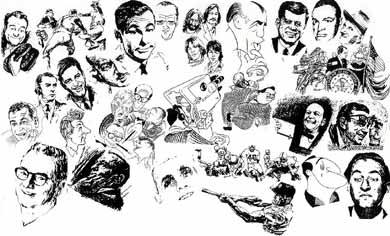
To search for a broadcast, please e nter a
Show Title, Personality, Airdate, Archive ID, Keyword or Phrase into the Search textboxes at the top of the page:
PRESERVING & ARCHIVING THE SOUND OF
LOST & UNOBTAINABLE ORIGINAL TV
(1946 - 1982)
"Preserving & disseminating important TV Audio
Air Checks, the video considered otherwise lost."
-Library of Congress
Vintage Television Audio Broadcasts
22,000 Titles - 20,000 Hours
Home | About us | Order Inquiry | TV Categories | Personality Index | Title Index
Archival Television Audio, Inc.
www.atvaudio.com
209 Sea Cliff Avenue
Sea Cliff, New York 11579
Attention: Phil Gries
|
Founder & Owner Phil Gries Director of Photography www.philgries.com |
"Any Inquiries"
Phone/Fax: (516) 656-5677
Email Us: gries@atvaudio.com
© 2002-2024 Collector's Choice Archival Television Audio, Inc.
All Rights Reserved.

Unique Visitors:
Visitor Counter
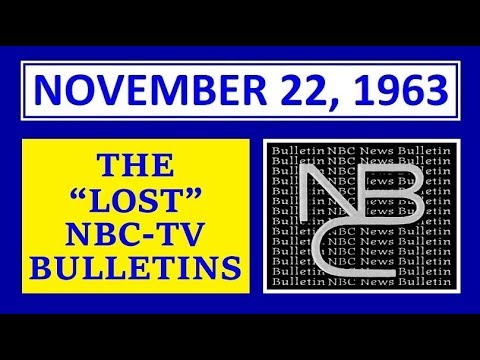
UNIQUE in the WORLD audio air check recordings by 20-year-old Phil Gries, archiving the first, second bulletins & initial NBC TV broadcast coverage of President John F. Kennedy's assassination. Not recorded by NBC or any other resource in the country.
- A&E TV SPECIAL - host Edwin Newman (11-22-1988) introduction - 25th Anniversary of JFK Assassination.
- NBC TV "Lost Don Pardo Bulletins" & Lost first 3:53 TV coverage (Phil Gries unique broadcast audio recording) unable to be video tape recorded or audio tape recorded by NBC.
- Phil Gries telephone interview with Don Pardo (5-14-1998).
- 10 minutes.
LIVE with PHIL GRIES
ARCHIVAL TELEVISION AUDIO - WEBINAR
Each Friday Evening from 7:30 - 8:30PM EST.
 RETRIEVABLE LOST MEMORIES
RETRIEVABLE LOST MEMORIESORDER
Vintage Television Audio Broadcasts
22,000 Titles
20,000 Hours

Testimonials
The Senior Moments Radio Broadcast show interviews Phil Gries about his Archival Television Audio archive and his restored documentary film, "Harlem School 1970"

Glen Cove Senior Center
January 23, 2018
 Phil Gries' recordings
Phil Gries' recordingsof vintage sounds
never grow old.

Hear Phil Gries on

Hear Phil Gries
and Joe Franklin
on Bloomberg Radio
(April 28, 2012)

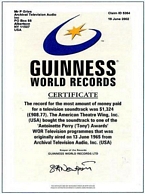
Home
Contact Us
ORDER INQUIRY
Hear Phil Gries on
National Public Radio
Archive Profile

ALL THINGS CONSIDERED
"Raising Ali"
(May 22, 2015)
Hear Phil Gries
on Sports Talk:
August 25, 2019
June 26, 2016
August 9, 2015




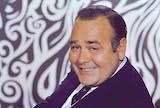
 Archive
ArchiveSearch Library
TV Categories
Personality Index
Title Index
ARSC Journal Article Publication: Lost TV Programs (1946-1972)

Hear Phil Gries presentations at ARSC (Association for Recorded Sound Collections) 2001, 2008, 2009, 2010, 2011, 2014.
Audio Samples

(Audio files may take 20 seconds or more to load)
1960's TV
Audio Player
103 Broadcast Samplers
AudioAndText™
Content
(Browser needs to
allow Flash content)
Content Collections
JFK Assassination
Coverage
NPR Walter Cronkite Essays
Civil Rights Movement (1956-1968)
Space Exploration (1956-1972)
Vietnam War
(1961-1975)
[854 Entries]
Company Information
About Us
Descriptions
Access
Fees
Archive
TIME-LINE
Accreditation
Master Materials
Research
Copyrights
Restricted Archive Titles
Catalogs
Related Materials
TV History
Lost Television
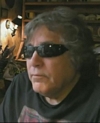
Jose Feliciano, at 70, listening to his FIRST TV variety show appearance (Al Hirt: FANFARE), telecast on July 17, 1965, when he was 19 years old.
TV Audio:
Rare & Valued
When TV Variety
Was King
This Anniversary Day
In Television History
ARSC/IASA London Conference: Why Collect?

News 12 Long Island
Live Television Profile:
Archival Television Audio, Inc
CAPTURED LIVE: CULTURES OF TELEVISION RECORDING AND STORAGE, 1945-1975

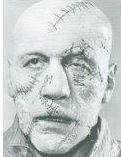
NBC MATINEE THEATER
FRANKENSTEIN
NBC TV - Feb. 5, 1957
8:23 min. excerpt
Phil Gries TV Audio Archive
Profile Segment
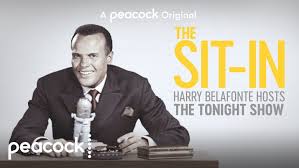
Harry Belafonte Hosts
The Tonight Show
5:21 min. excerpt
Password: Phil
(Case Sensitive)